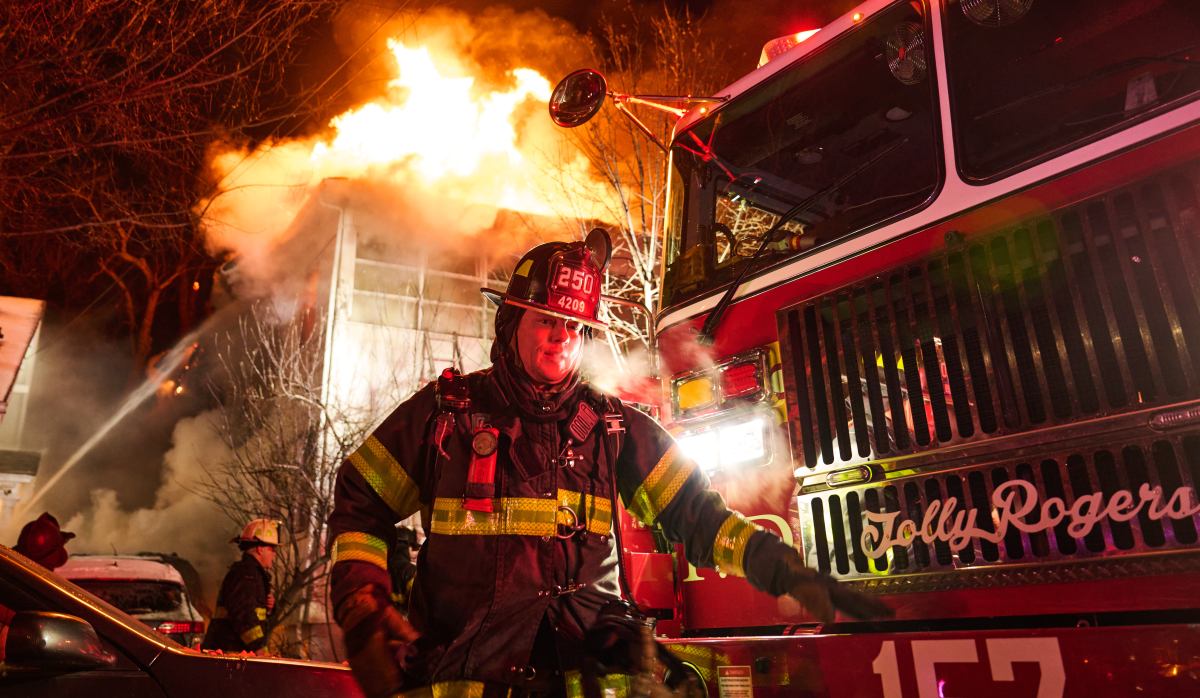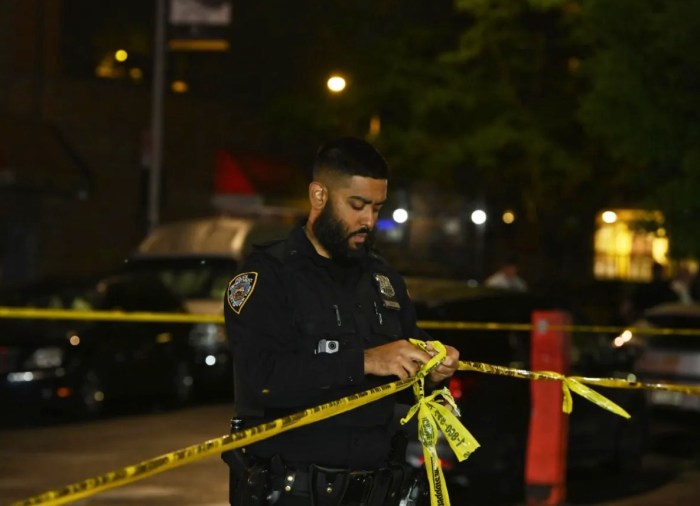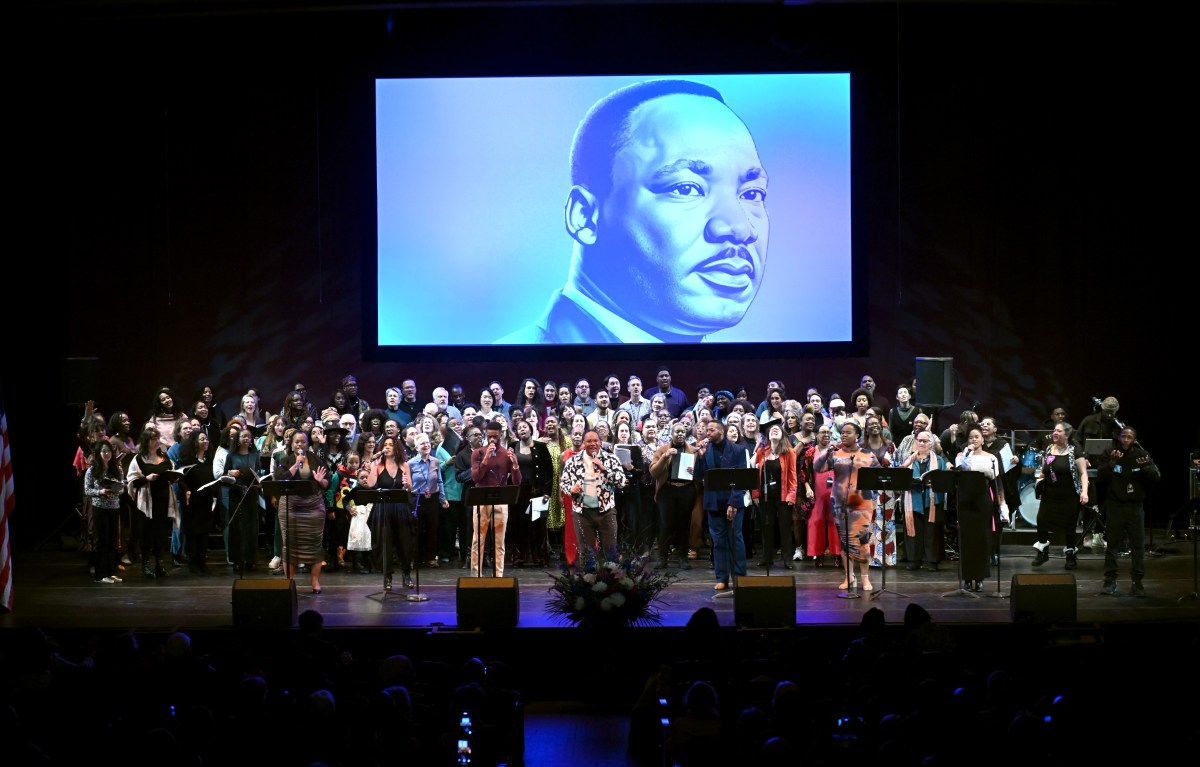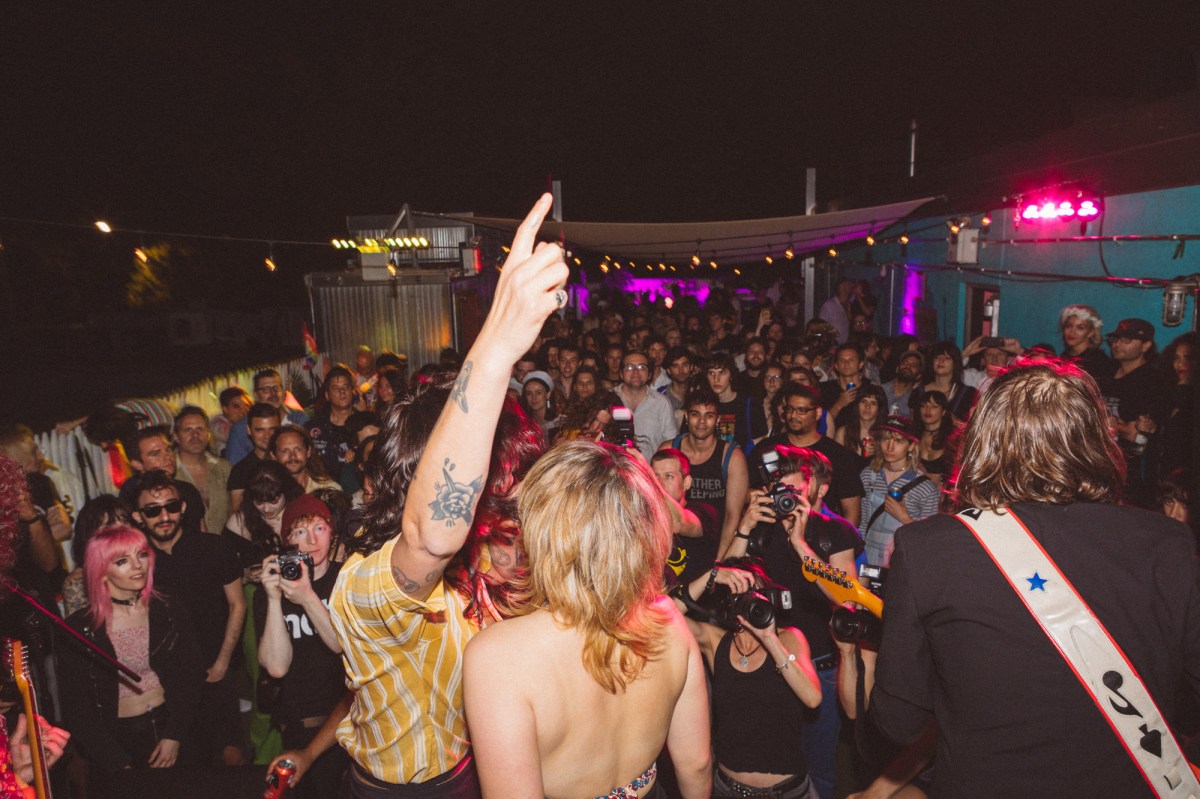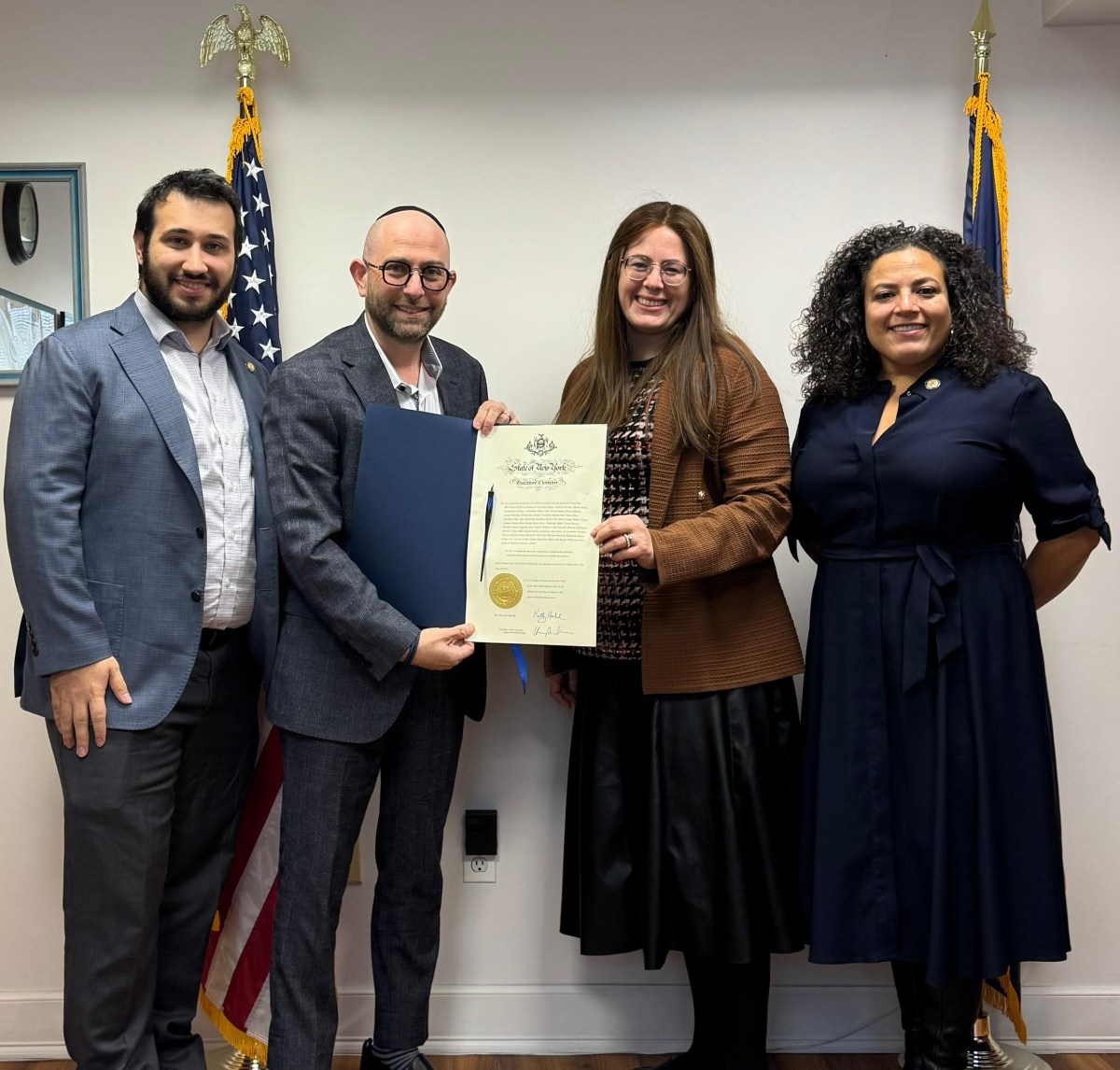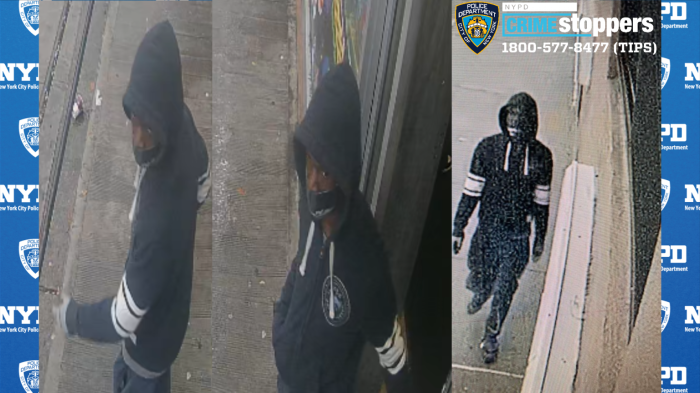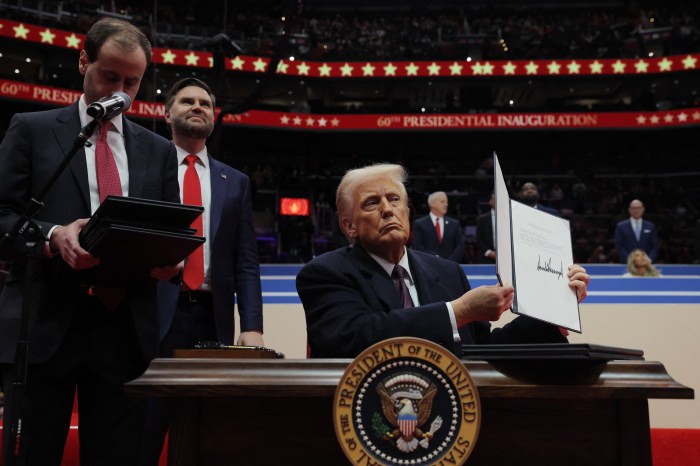
City Councilman Antonio Reynoso joined forces with a homeless advocacy group Tuesday in pushing the city to make good on its promise to install more public restrooms, noting the dearth of toilets takes a toll on the city’s most vulnerable residents.
Between chants of “Toilets, not tickets,” Reynoso and advocates at Picture the Homeless urged the city to quickly deploy 15 automated public restrooms currently in storage. They stood near one of five such bathrooms open to the public, near Madison Square Park. The city Department of Transportation has been promising to find places for a private company to install all 20 automated public toilets in its portfolio for a decade, but has encountered delays due to what it describes as logistical issues.
“This is not just a homeless issue,” said Monique George, executive director of Picture the Homeless. “This is a New Yorker issue. This is a tourist issue. This is a women’s issue. This is an everybody that’s gotta pee issue.”
Even if it were exclusively an issue for homeless New Yorkers, Reynoso said he would fight for more public restrooms across the city and in his district, which spans Williamsburg and Bushwick. He said city-dwellers living on the street deserve the dignity of accessing a toilet when they need one.
In fact, Reynoso argued all public restrooms should be free. The automated, self-cleaning toilets cost a quarter, and allow patrons up to 15 minutes of uninterrupted use.
“I don’t think that we should ask the most vulnerable populations to pay to use the restroom,” Reynoso said.
The automated toilets are part of a program launched in 2008 with Cemusa, which secured a 20-year franchise agreement with the city to install and operate 20 of the toilets, as well as 3,500 bus stop shelters and at least 330 newsstands. Per the agreement, Cemusa, which has since been bought by JCDecaux, would shell out at least $999 million to the city and provide $398 million in free advertising outside the five boroughs in exchange for the ability to advertise on the bathrooms, shelters and newsstands.
A decade later, the toilets are available from 8 a.m. to 8 p.m. at Plaza de Las Americas in Washington Heights, Corona Plaza in Queens, Grand Army Plaza in Brooklyn, Fordham Plaza in the Bronx and Madison Square Park in Manhattan. The Madison Square Park location, however, was out of order Tuesday afternoon. The Department of Transportation said it alerted the operator, which has taken steps to repair it.
The department says it has encountered siting obstacles and a lack of public support in the past when proposing locations for the toilets. In selecting sites, the department must find a place with access to a sewer and sufficient space on the sidewalk and below-ground for the required infrastructure.
The department also takes into account support from elected officials and nearby communities, which has been an obstacle in the past. Earlier this year, Brooklyn Community Board 7’s transportation committee shot down a site proposed for a toilet, citing a lack of foot traffic.
The department will keep working to find sites for the remaining toilets, according to its spokeswoman, Alana Morales.
“DOT will continue to work with communities and elected officials to find feasible locations for Automatic Public Toilets,” Morales wrote in an email.
She said one of the toilets is bound for Reynoso’s district, at the Williamsburg Bridge bus terminal, and described it as in the early stages of installation.




